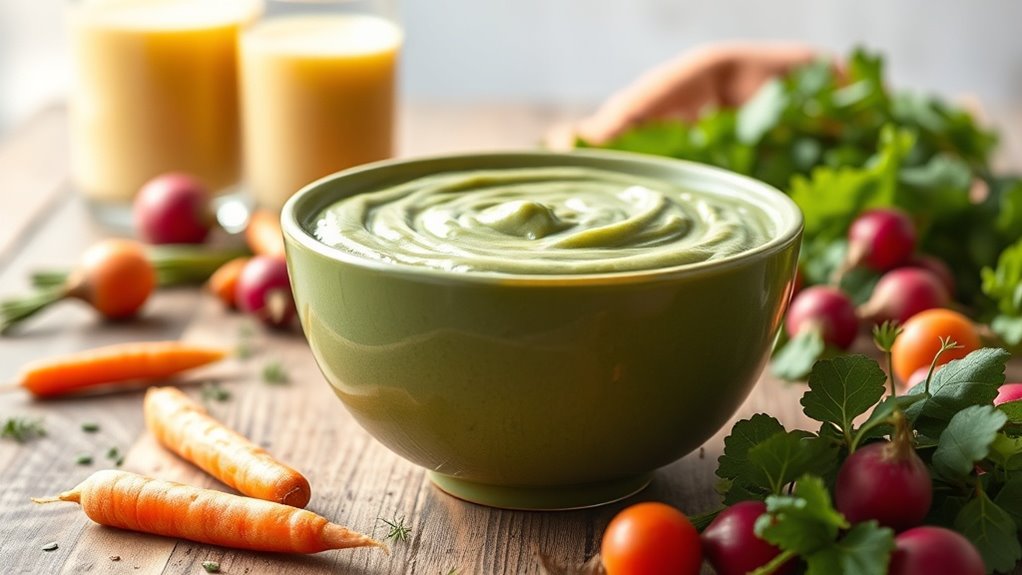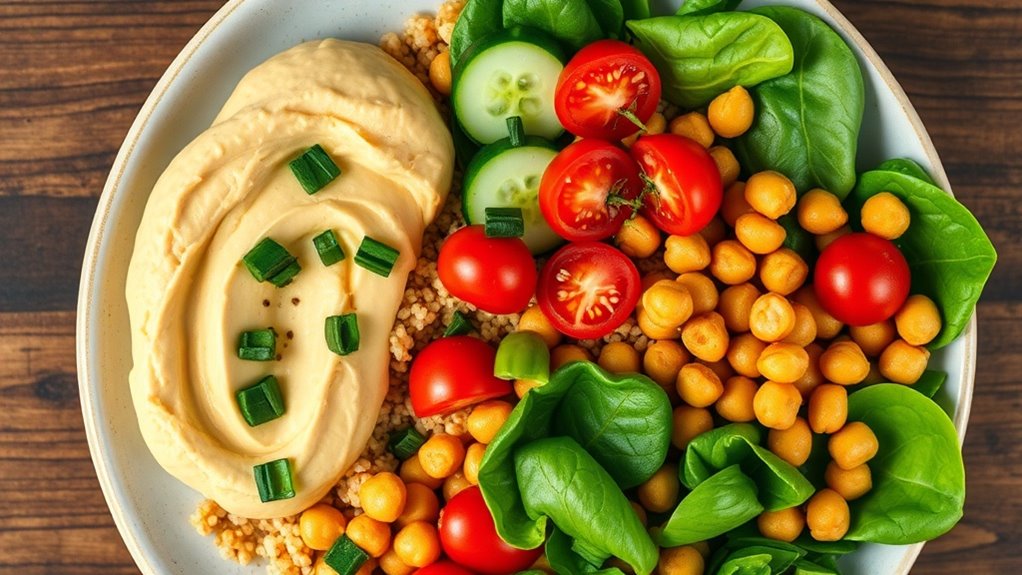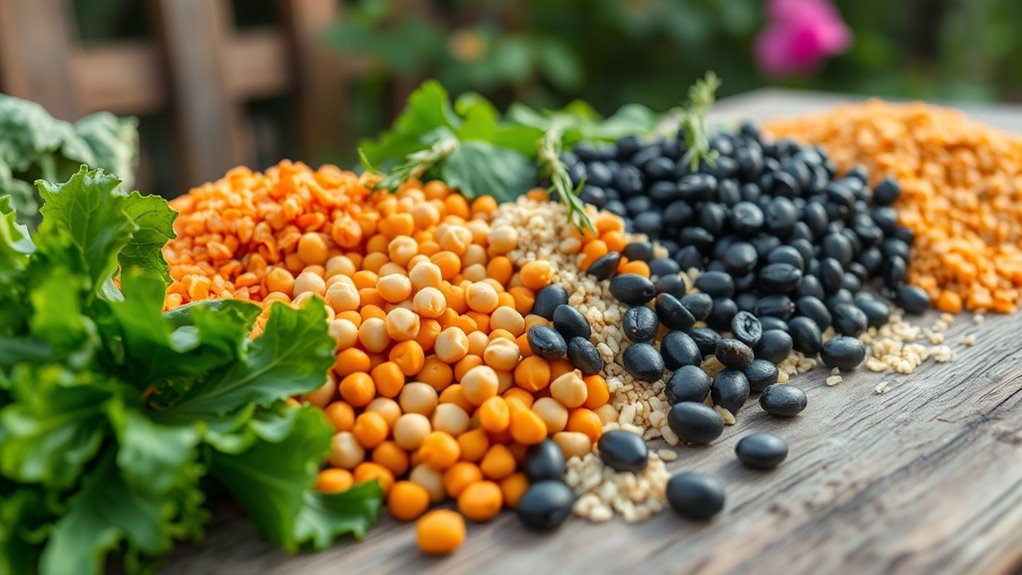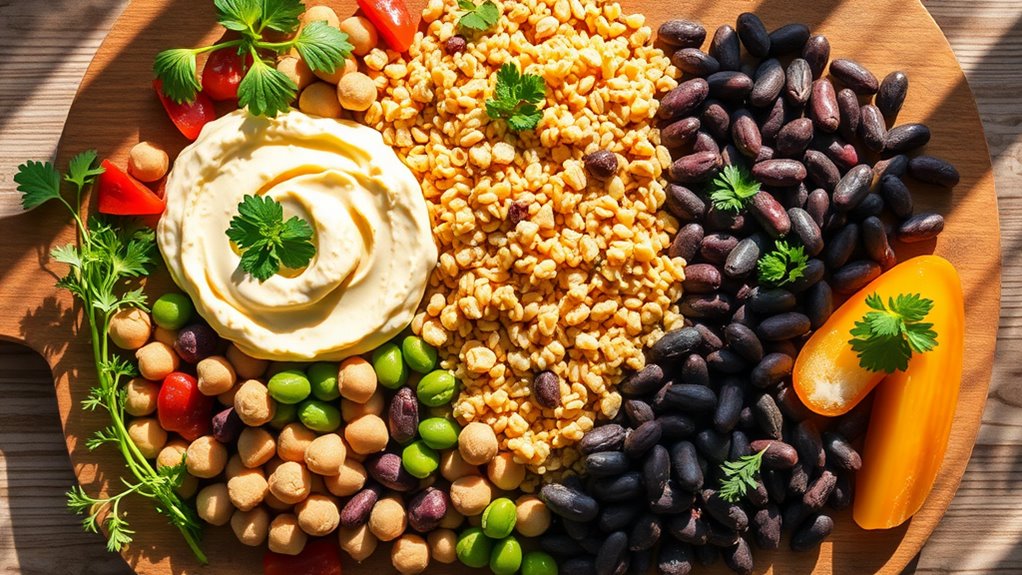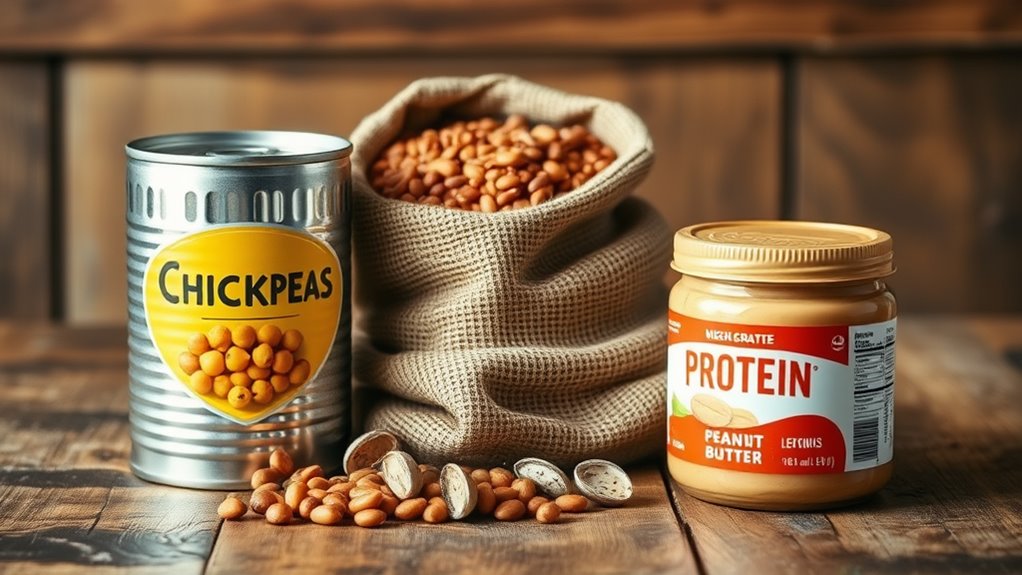This Smooth Plant Protein Swap Might Surprise You
Did you know that some of the most potent protein sources aren’t found in meat? Plant proteins like quinoa, lentils, and tempeh pack a surprising punch in terms of essential amino acids and fiber. By swapping out traditional proteins for these alternatives, you can enhance your meals while supporting heart health and digestion. Curious about how to make this transition seamlessly? Let’s explore the power of these nutritious options.
The Rise of Plant-Based Proteins
As consumers increasingly prioritize health and sustainability, the rise of plant-based proteins has transformed the food landscape. You’re likely noticing more options for vegan protein, like lentils, chickpeas, and quinoa. These sources not only provide essential amino acids but also lower your environmental impact. Additionally, many of these alternatives, such as legumes like lentils, promote heart health and improve digestion while being versatile for various dishes.
Unveiling the Surprising Swap
While many people think of meat as the primary source of protein, surprising alternatives can provide the same nutrients without the negatives often associated with animal products. Check out this comparison to find some lesser-known, nutrient-rich swaps:
| Alternative | Protein Content (g) | Additional Benefits |
|---|---|---|
| Quinoa | 8 | Complete amino acid profile |
| Lentils | 9 | High in fiber |
| Chia Seeds | 5 | Omega-3 rich |
| Edamame | 9 | Antioxidants |
| Tempeh | 19 | Fermented goodness |
Incorporating canned beans into your meals is another excellent way to bump up protein intake while enjoying a variety of flavors and textures.
Nutritional Benefits of the Alternative
Exploring the nutritional benefits of plant-based protein alternatives reveals a wealth of health advantages that can significantly enhance your diet.
Here are four compelling reasons to make the switch:
-
High fiber content: Aids digestion and promotes satiety.
-
Lower saturated fat: Supports heart health.
-
Rich in essential nutrients: Provides vitamins and minerals.
-
Complete protein source: Contains all nine essential amino acids. Additionally, many plant proteins, such as legumes, are nutrient-dense, high in fiber, and versatile for use in various dishes.
How to Incorporate It Into Your Diet
Incorporating plant-based protein into your diet can be both simple and enjoyable.
Start by swapping animal proteins with legumes, nuts, or seeds in your meals.
Add protein-rich ingredients like chickpeas to salads or blend hemp seeds into smoothies.
Experiment with meat alternatives made from soy or peas.
These options not only boost your protein intake but also offer diverse flavors and textures. Edamame provides a complete amino acid profile that is perfect for enhancing your meals and health.
Recipes to Inspire Your Protein Journey
As you embark on your protein journey, delicious plant-based recipes can make all the difference in keeping you motivated and satisfied.
Try these protein-packed options to fuel your day:
-
Quinoa Salad: Toss quinoa with black beans, corn, and avocado.
-
Chickpea Curry: Simmer chickpeas in coconut milk and spices.
-
Lentil Soup: Cook lentils with veggies and herbs.
-
Tofu Stir-Fry: Sauté tofu with mixed vegetables and soy sauce.

